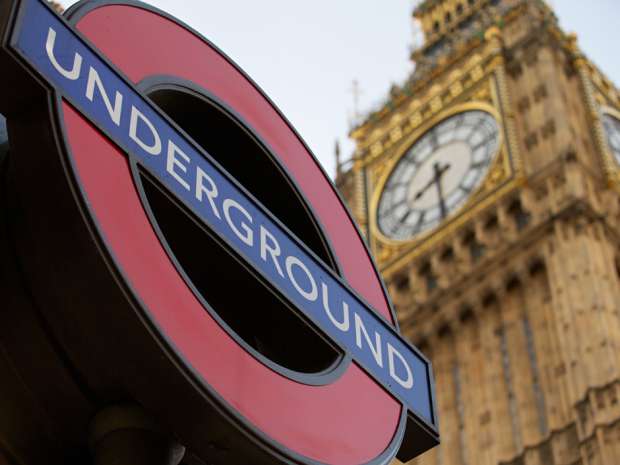London’s city council has lambasted Bombardier Inc. for “duping” the British capital into awarding it a train-signalling contract that it was incapable of delivering, creating “nothing short of a disaster” for the London Underground.
The scathing report, prepared by the London Assembly’s Budget & Performance Committee, doesn’t mince words in its criticism of Bombardier and Transport for London (TfL), the government body that awarded the contract.
London Mayor Boris Johnson also didn’t equivocate, telling the committee that Bombardier “totally stuffed it up.”
In June 2011, Bombardier’s transportation division was awarded a contract to upgrade the London Underground’s automatic train control, or signalling system.
The company said it could do the job by 2018 for 354 million pounds (about $670 million) but it quickly became apparent that it wouldn’t be able to deliver on time or on budget, according to the report, which calls Bombardier’s performance “shameful.”
As a result, the contract was cancelled in December 2013, costing the city 85 million pounds. The contract was re-awarded to Thales SA, a French transportation company, but will now be delivered five years late and cost 886 million pounds more than originally planned.
“TfL has accused Bombardier of more than incompetence,” the report says. “Bombardier’s inability to deliver the programme will be hugely damaging to its reputation as a world-class signalling supply company, but even more damaging are claims of misrepresentation. TfL believes it was duped by Bombardier from the outset about its expertise and experience.”
As a result of the delay, TfL estimates that there will be 11 million fewer Underground journeys per year, costing it 271 million pounds in lost fares. The delay will affect the busy District, Circle, Metropolitan and Hammersmith & City lines, which make up nearly 40 per cent of London’s Tube network and carry approximately 1.3 million passengers per day.
Bombardier spokesman Marc Laforge declined to comment on the report’s conclusions, but said the contract was ended “jointly and amicably.”
“We had completed significant design work but there have been several lengthy discussions during the design phase due to the increased complexity of the project,” Laforge said in an email.
“Though we do not agree with the judgements made in the report, we continue to have amicable relations with UK customers, building on a long and successful history of cooperation and a significant presence in the UK market.”
Bombardier doesn’t break out its results by country, but Europe accounted for $5.3 billion or 64 per cent of its transportation revenue in 2015.
London’s damning report comes as the Toronto Transit Commission (TTC) continues to wrangle with Bombardier over a $1.2-billion contract for 204 new streetcars. Only 16 of those streetcars have been delivered even though the original timeline planned to have 67 on the road by last October.
The company has blamed “production issues” and has added a third shift to its plant in Thunder Bay, Ont., to speed up production.
An audit conducted by KPMG into the London Underground agreement found that Bombardier won the contract by “significantly underbidding” its competitors on price.
“Bombardier was offering a lot more and for a lot less,” the report says. “Its price was substantially lower, its final delivery date was 21 months earlier, it would deliver 32 instead of 31 trains per hour and, unlike its competition, it could do all the work with zero line closures.”
However, KPMG found that TfL failed to investigate Bombardier’s ability to deliver on its promises.
“If something sounds too good to be true, it probably is,” the report concludes.
Bombardier Inc slammed by London for ‘shameful’ Tube project: ‘Nothing short of a disaster’

























Laissez un commentaire Votre adresse courriel ne sera pas publiée.
Veuillez vous connecter afin de laisser un commentaire.
Aucun commentaire trouvé